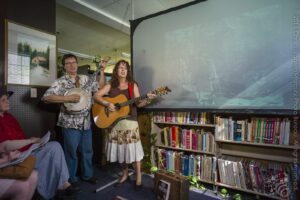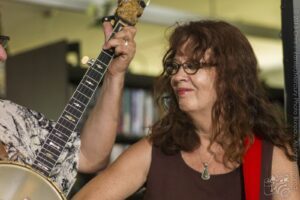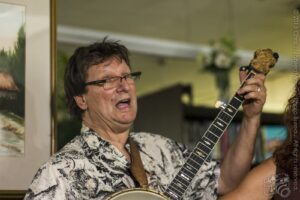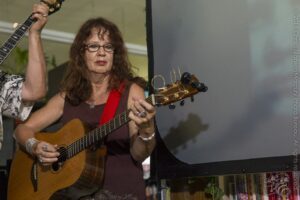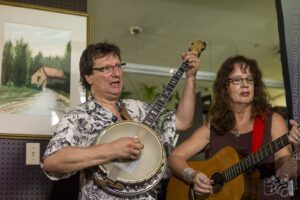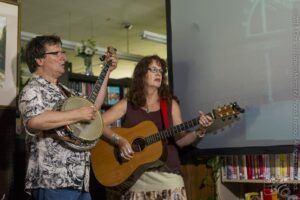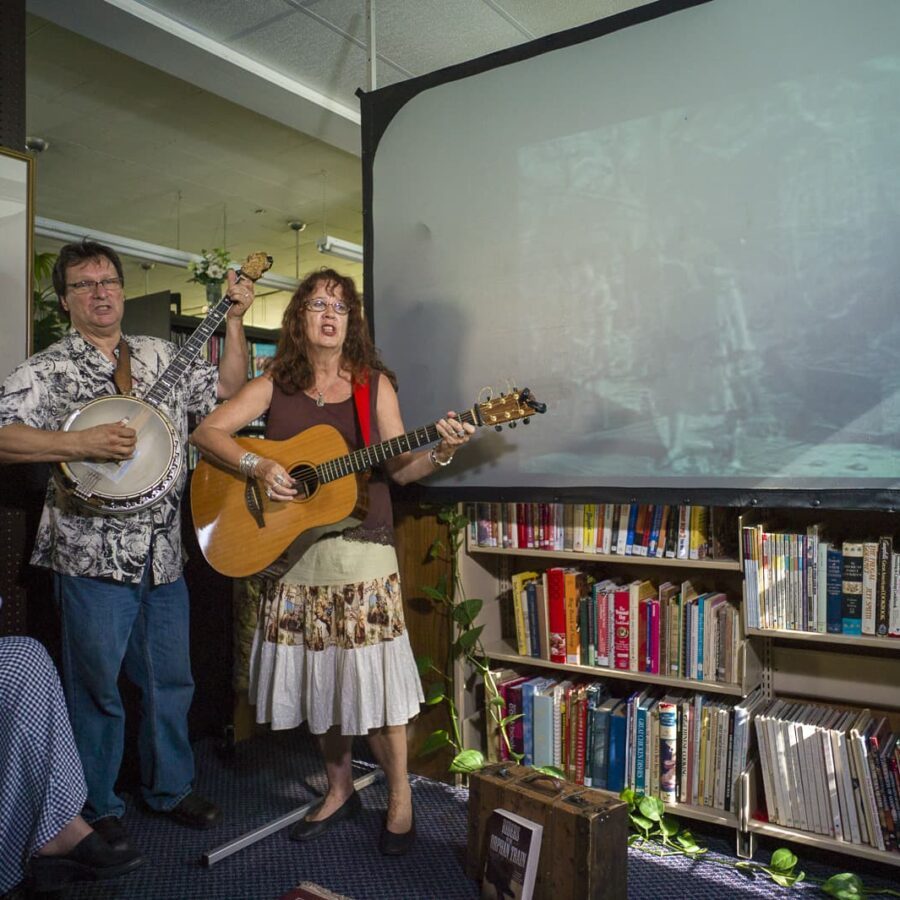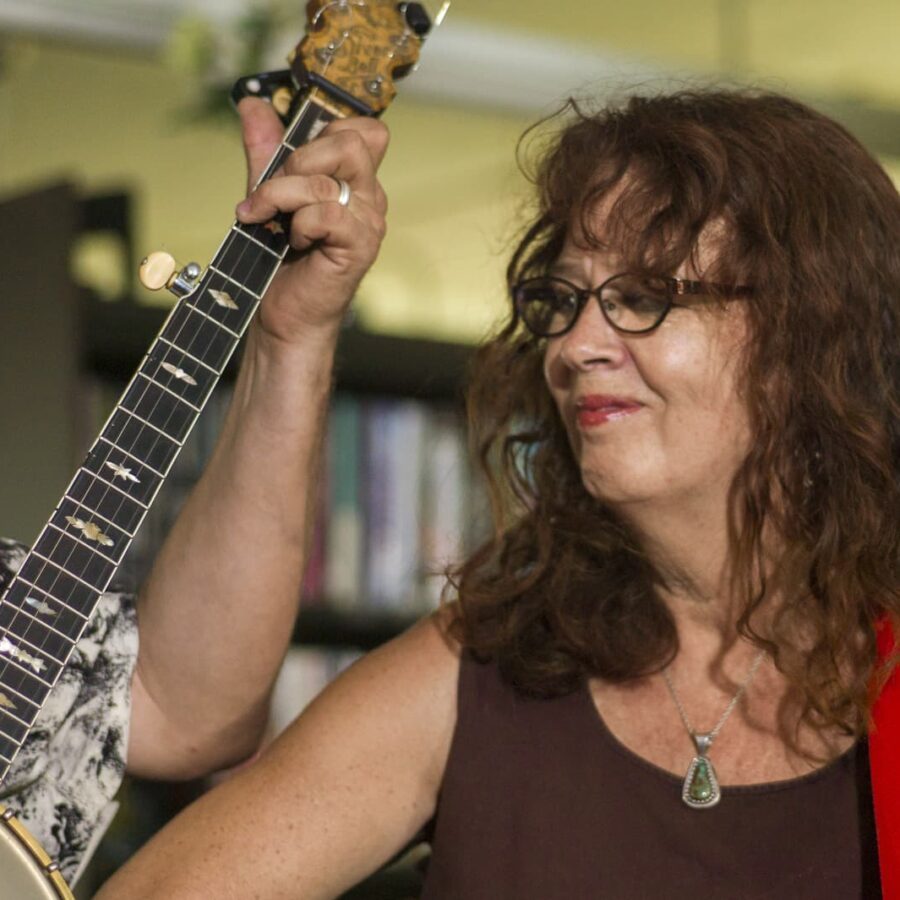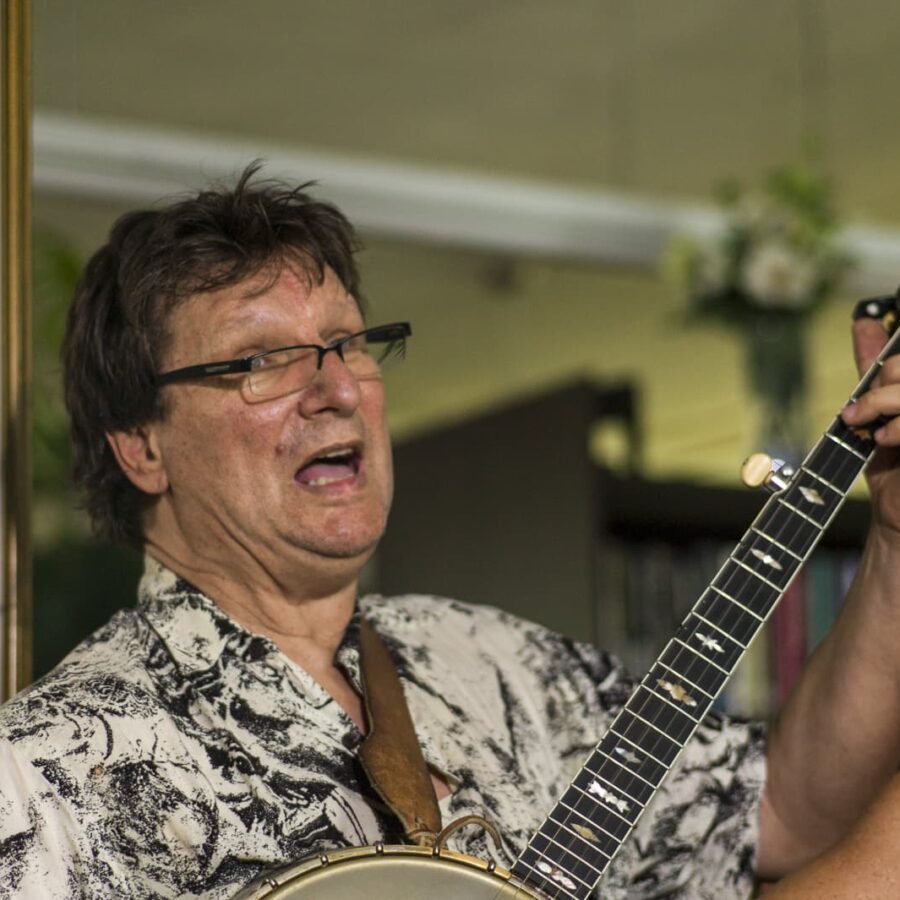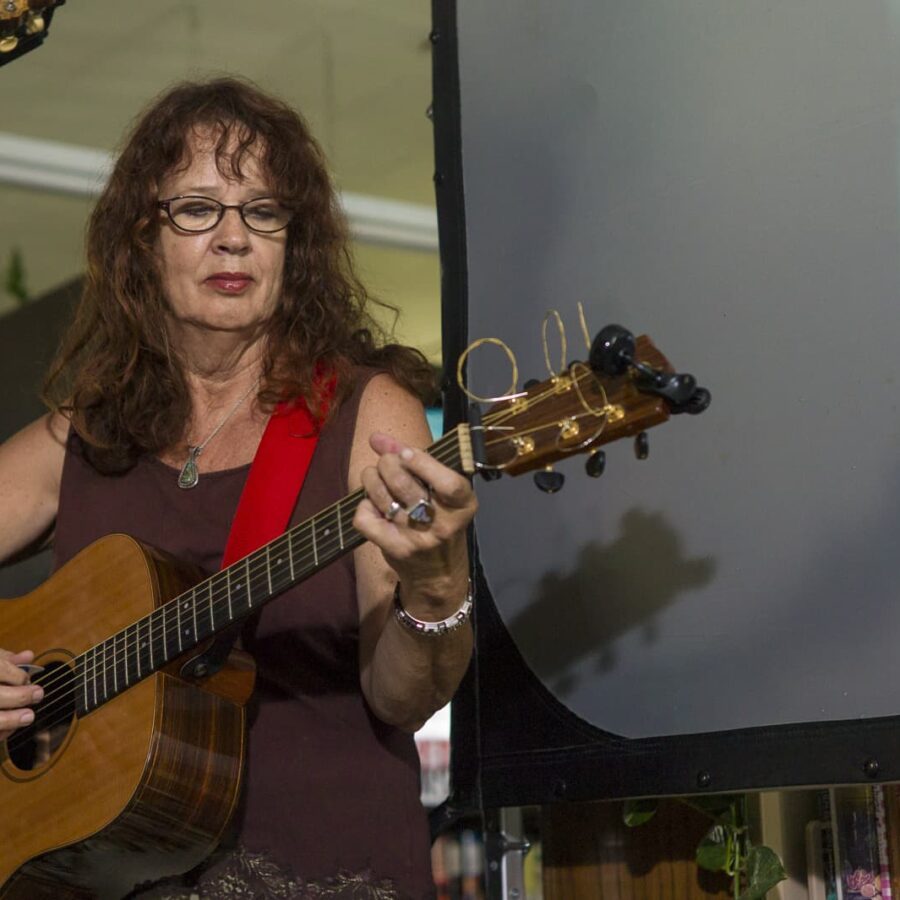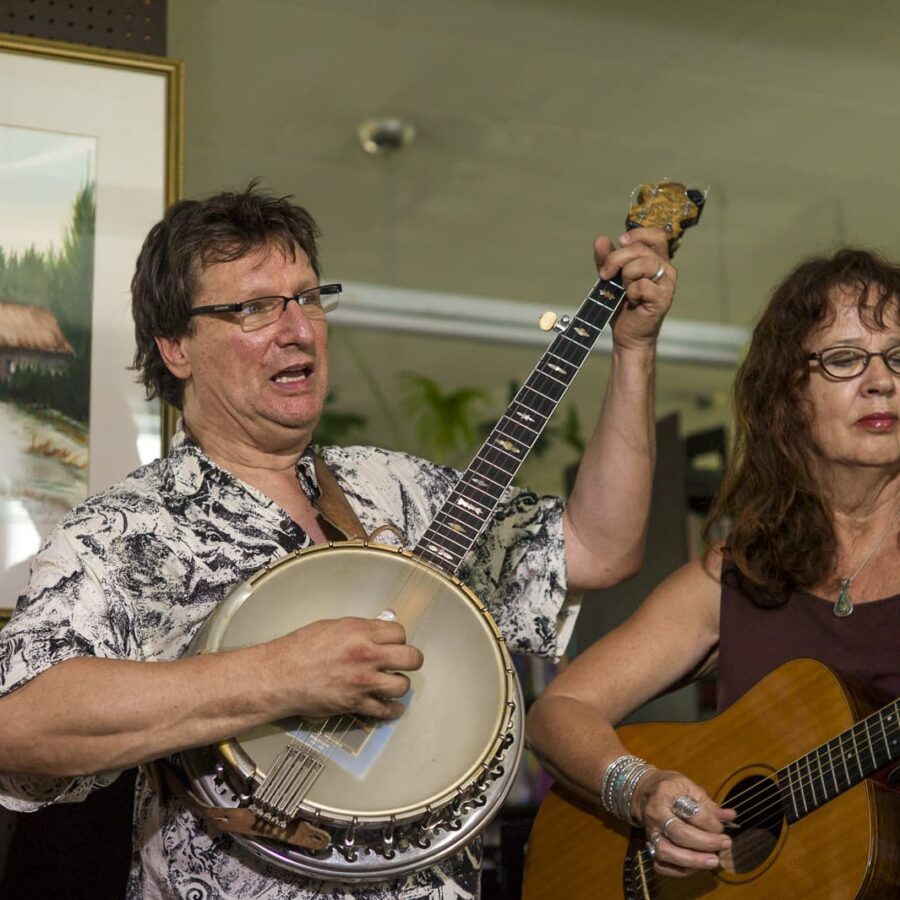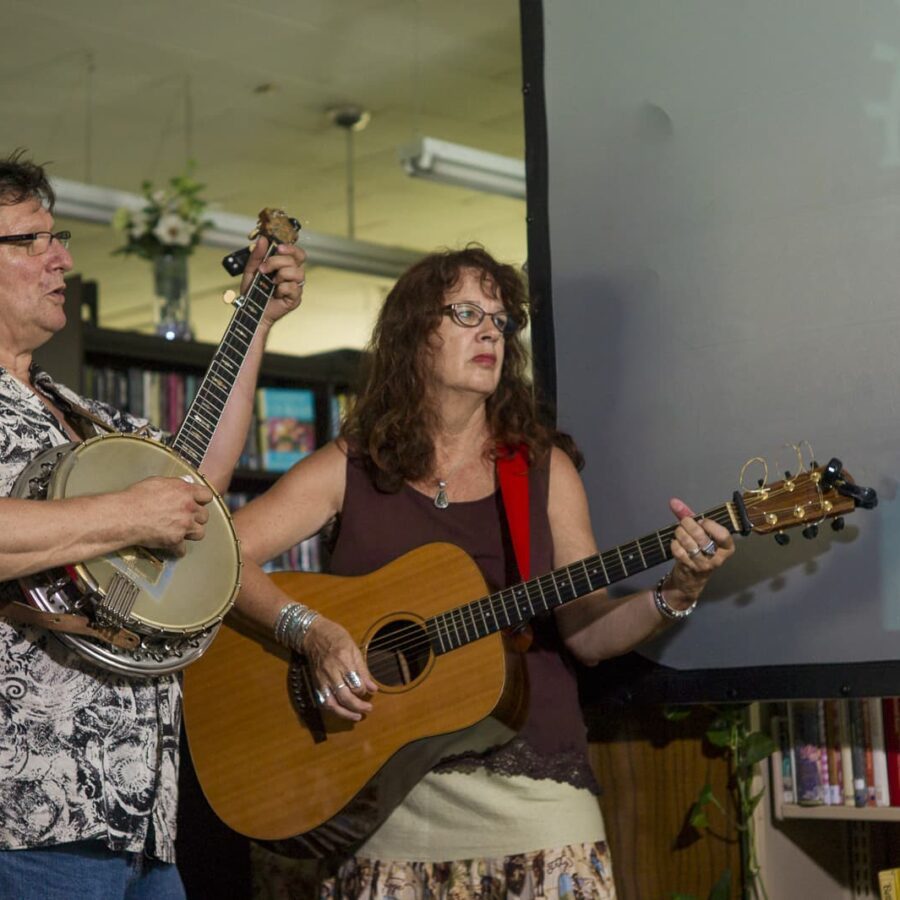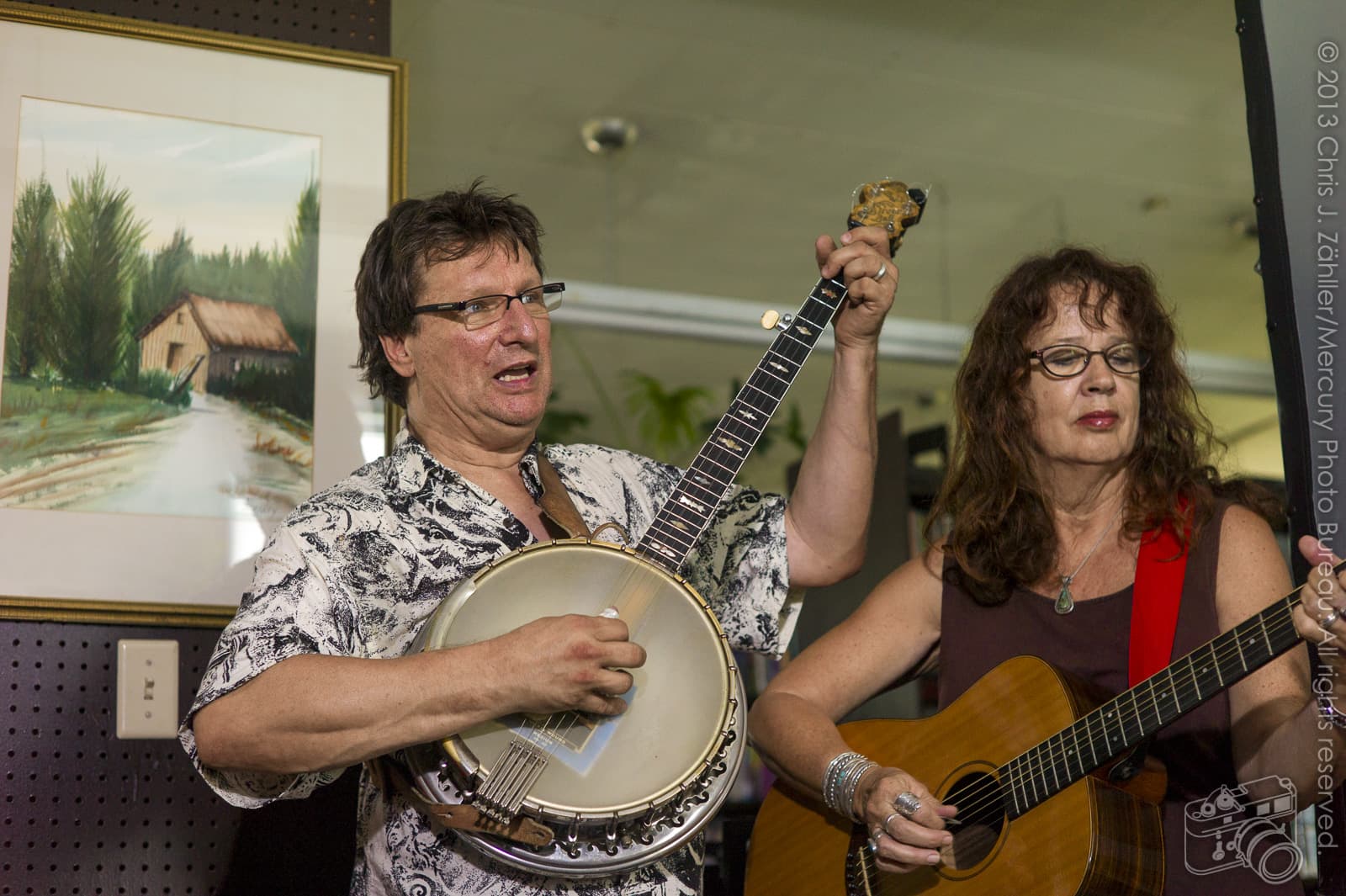
Riders on the Orphan Train — Woody Guthrie Folk Festival
The Orphan Train
Pair Recounts Dark Historical Chapter in Story & Song
This was by far the most well-attended program the library has ever offered […]. Everyone who attended was moved, educated and entertained […]. Your program truly made an impact on our community.
Between 1854 and 1929, the Children’s Aid Society (and later, the Catholic New York Foundling Hospital) removed over a quarter million orphans and unwanted children from large metropolises (including New York City, Boston, and Chicago) and gave them away at train stations across the US. Organizer Charles Loring Brace, a New York City minister, conceived the program to rid the city of homeless street children. The impulse behind the “Orphan Train” was charitable, but its history was marked by both horror and hope.
Novelist and humanities scholar Alison Moore and musician Phil Lancaster initially learned about this dark chapter in history by way of the 1995 PBS documentary The American Experience: The Orphan Trains.
We were so moved by the documentary we saw on the Orphan Trains that we each wrote a ballad […] and began to research the material […]. We were privileged to take part in […] a reenactment of an orphan train ride from Springdale to Van Buren, Arkansas. We […] rode the train performing the songs we had written. The experience of seeing this event unfold visually [in the] way we had imagined it […] was extraordinary.
The pair have been presenting a 90-minute multi-media program at libraries, schools and universities, and arts festivals all over the US for several years. They have been awarded a number of grants along the way. This past July, they presented Riders on the Orphan Train at the Okemah Public Library as part of the 16th annual Woody Guthrie Folk Festival. The electrical power had been knocked out for the entire town shortly before they were to begin due to a sudden thunderstorm, but a festivalgoer parked outside the library had a generator and some extension cords in his truck. He kindly offered them up, allowing the presentation to go forward.
Gallery
The Gallery
